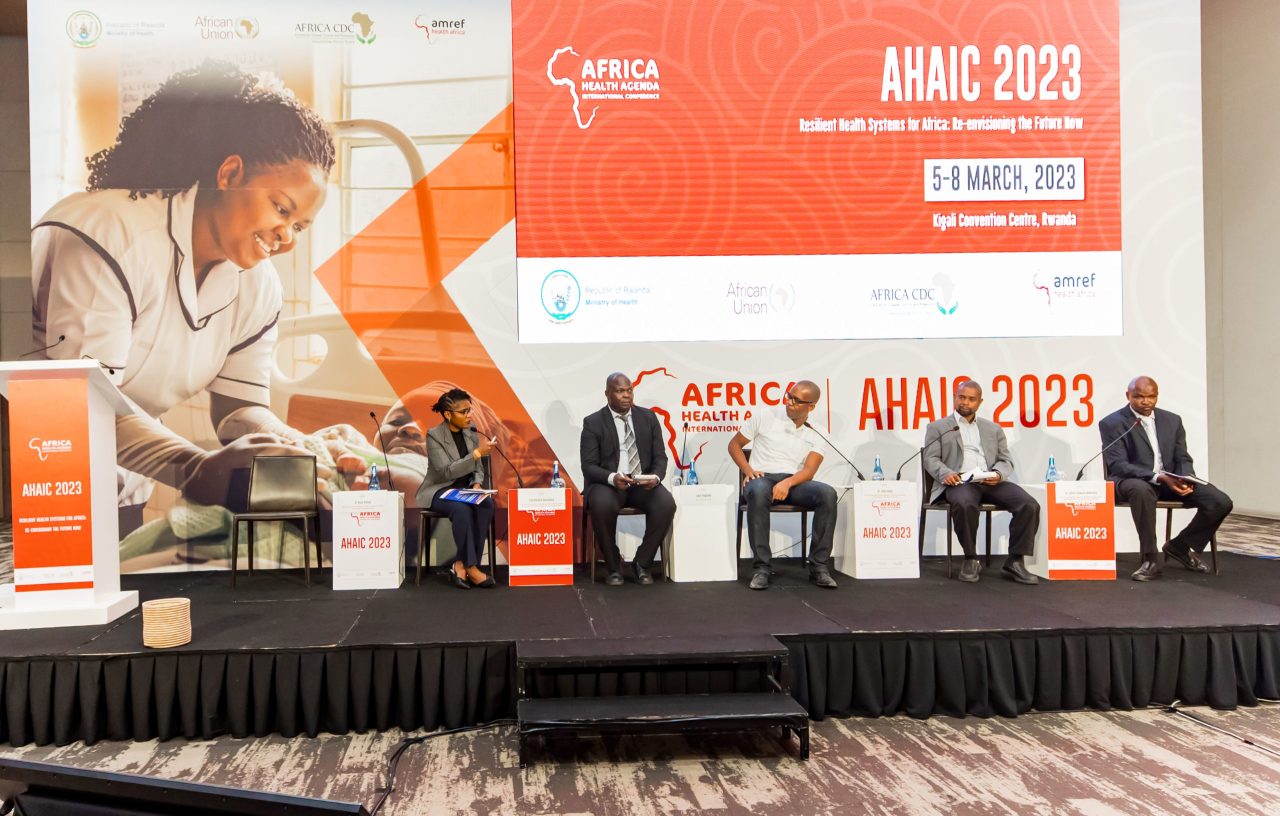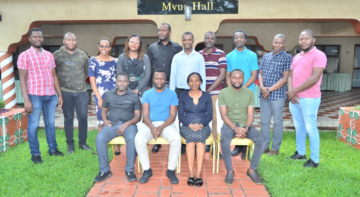Blogs

The African Union Agenda 2063 recognises that technology is essential to advancing the economic growth of the continent. To this end, the African Union tasked its development agency, AUDA-NEPAD, to create the Africa Union High-level Panel on Emerging Technologies (APET). APET offers expert guidance on technology and development issues. The recommendations from the panel will allow Africa to utilise current and emerging technologies and innovations that have the potential to accelerate socio-economic development.
With regard to health, APET has prioritised several emerging technologies that, if successfully developed, tested and deployed, could improve overall health on the continent. On 8 March 2023, the Platform for Dialogue and Action on Health Technologies in Africa (Health Tech Platform) hosted a parallel session titled “Accelerating Africa’s Progress in the Development, Testing and Deployment of Emerging Health Technologies” at the Africa Health Agenda International Conference (AHAIC), held in Kigali, Rwanda. The session brought together experts to discuss some priority health technologies, including gene drives and monoclonal antibodies for malaria control and the use of drones and microgrids in healthcare. This discussion fed into the overall theme of the conference – “Resilient Health Systems for Africa: Re-envisioning the Future Now”.
Monoclonal antibodies for malaria prevention
The presentation by Dr Said Jongo, Consultant Physician and Clinical Epidemiologist at Ifakara Health Institute, focused on the potential of monoclonal antibodies for malaria prevention. Monoclonal antibodies (mAbs) are lab-manufactured proteins that mimic the function of antibodies, designed to target specific proteins in cells and can block the cell’s function or mark it for destruction.
At the session, Dr Jongo presented the complex process of developing these monoclonal antibodies for malaria prevention, which requires multidisciplinary commitments, and few African countries have the necessary infrastructure and expertise for their development. Dr Jongo recommended establishing research partnerships with international organisations; developing local talent through training programmes; streamlining regulatory policies to promote the development of new drugs and technologies; and establishing facilities for producing and validating biologics. Such targeted efforts to build capacity for biotechnology and drug development in Africa will help in scaling up research and production of monoclonal antibodies for malaria prevention and other diseases that disproportionately affect African populations.
Gene drive mosquitoes for malaria control
Researchers are also exploring the use of gene drives mosquitoes for malaria control and elimination in Africa. Gene drive refers to a technique where an organism is genetically modified to favour the transfer of preferred traits from one generation to the next during sexual reproduction, resulting in the rapid spread of these traits within a few generations. The development of this technology for malaria control is hampered by the limited capacity of African institutions and researchers; limited priority and investments by African governments; limited engagement of Africans in general; and growing opposition to its development.
In his presentation, Professor Richard Mukabana, Senior Research and Policy Analyst at the African Institute for Development Policy, urged participants to embrace scientific evidence in decision-making, not myths and unfounded statements against gene drive technology. He noted that African leadership is essential in harmonising regulations to enable research and testing of gene drive mosquito technology in Africa, providing further scientific evidence to guide decisions.
Drones in Healthcare
Tanzania, very early on, embraced drone technology and put in place regulations to support its use in healthcare. As such, organisations such as Tanzania Flying Labs are using drones to deliver medicines, vaccines and patient samples, identifying mosquito breeding grounds; and larviciding habitats mosquitoes are likely to thrive.
Nevertheless, as Leka Tingitana, Director of Tanzania Flying Labs, noted in his presentation, Tanzania and other African countries need better drone regulations and policies to guide the use and mainstreaming of the technology. Furthermore, countries need to cultivate a culture of innovation through education and capacity-strengthening activities, as well as harmonise cross-border regulations, to allow broad use of this technology.
Solar microgrids for vector-borne disease control
Dr Collins Mweresa, Senior Lecturer of Medical Entomology and Applied Parasitology at Jaramogi Oginga Odinga University of Science and Technology (JOOUST), presented a case study on how microgrids can be successfully deployed for vector-borne disease control. A microgrid is a self-sufficient energy system which relies mainly on renewable energy sources such as wind and solar and can be harnessed to provide power to a discrete locale, for instance, a hospital.
In his presentation, Dr Mweresa narrated how solar-powered, odour-baited traps (OBTs) were used in the mass trapping of mosquitoes on Rusinga Island in western Kenya. The research team found out that the proportion of persons with malaria was 30% lower among those living in houses with OBTs compared to counterparts who lived in houses without the OBTs. Therefore, modifying and adapting the technology to local situations and upscaling to control vector-borne diseases in Africa can contribute to eliminating malaria in Africa.
Feedback from the session
The presentations and discussion at the AHAIC session revealed that while emerging health technologies could complement current health intervention strategies and ensure positive health outcomes on the continent, there are several impediments which may undermine progress. Key among these impediments is limited or no regulations in fostering innovation and best practices to serve the needs of Africa’s populations. Nevertheless, the session also revealed that there is a willingness from a broad spectrum of stakeholders to engage in policy and regulatory reforms for research, scale up and local empowerment.
Related Posts





